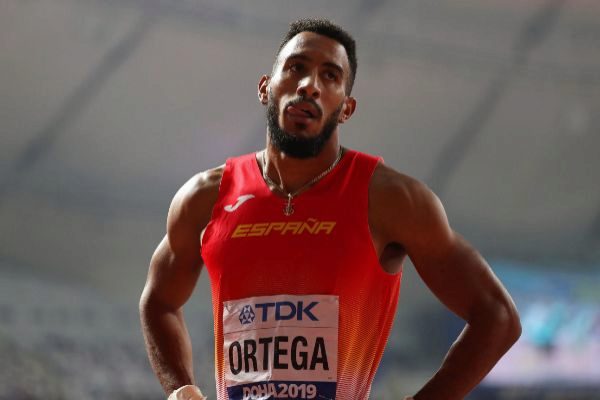It was a desperate strategy. At 6:00 pm on Thursday, almost 24 hours after his incident with Omar McLeod, Orlando Ortega was already missing the medal in the 110 meters hurdles of the Doha World Cup and the heads of the Spanish Athletics Federation (RFEA), the president Raúl Chapado and coach José Peiró accepted that there was nothing else to do. But, suddenly, there was a call.
The team leader, Carlota Castrejana, informed Chapado that the judges who travel with the selection for these cases, Eva Herrero and José María Rodríguez, had found a way to continue fighting for Ortega and demanded approval to do so. The appeal that a few hours earlier, early Thursday morning, had rejected the appeal court of the International Federation (IAAF) could be resurrected if the approach was changed.
Instead of focusing on the incident on the last fence, the fall of McLeod that ended up hindering Ortega, it was necessary to broaden the look throughout the race, prove that the Jamaican had been disturbed to the Spanish from the same exit and that way the Appeal would have to be reviewed again. The judges, Castrejana and the entire RFEA set out to look for television repetitions and images of the Spanish photographers present in Doha and that was the result.
At 8.30 pm on Thursday, the IAAF Court of Appeal confirmed that, to compensate Ortega for the damages caused by McLeod, he will be awarded the bronze of the test, the minimum medal. At the time of the incident with the Jamaican, the Spaniard was second, but it is impossible to prove that he had finished in that position.
According to the criteria of The Trust Project
Know more- more sport
- World Athletics Championship
Athletics The 50 kilometers march also gets hot: "It was a walk"
Athletics WorldGarcía Bragado, the inexhaustible athlete
World AthleticsFraser-Pryce, the Jamaican queen of the 'sprint', takes gold in the 100 meters

